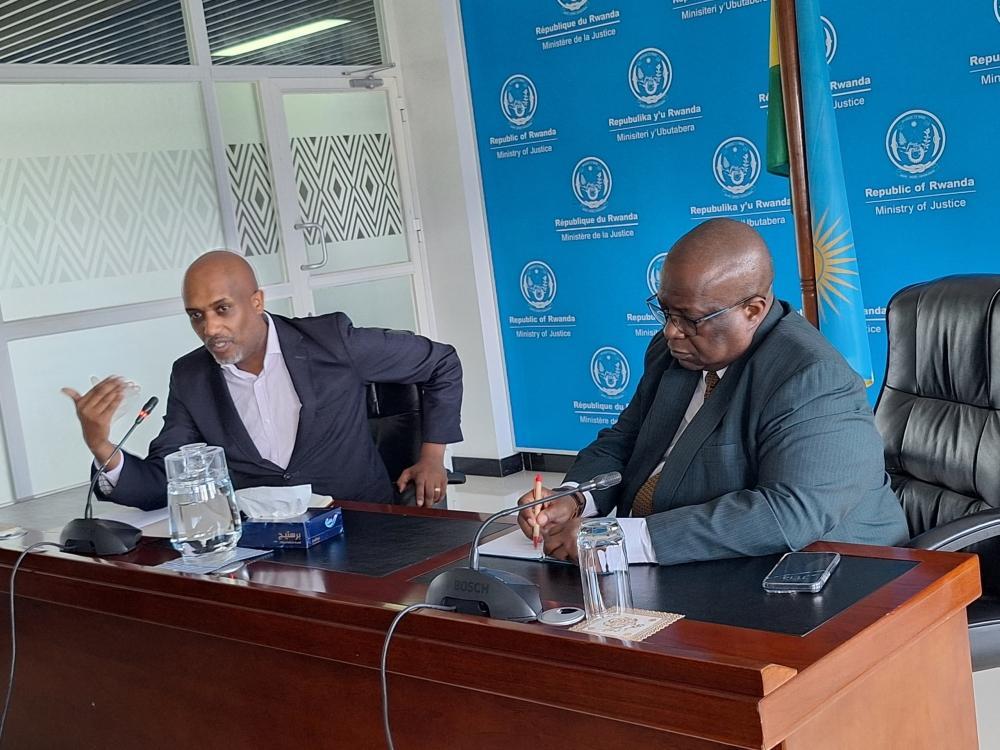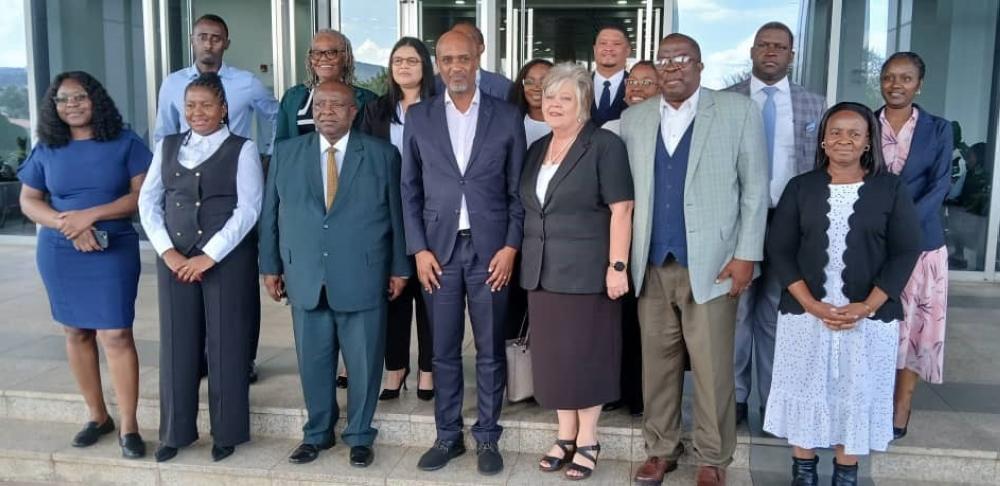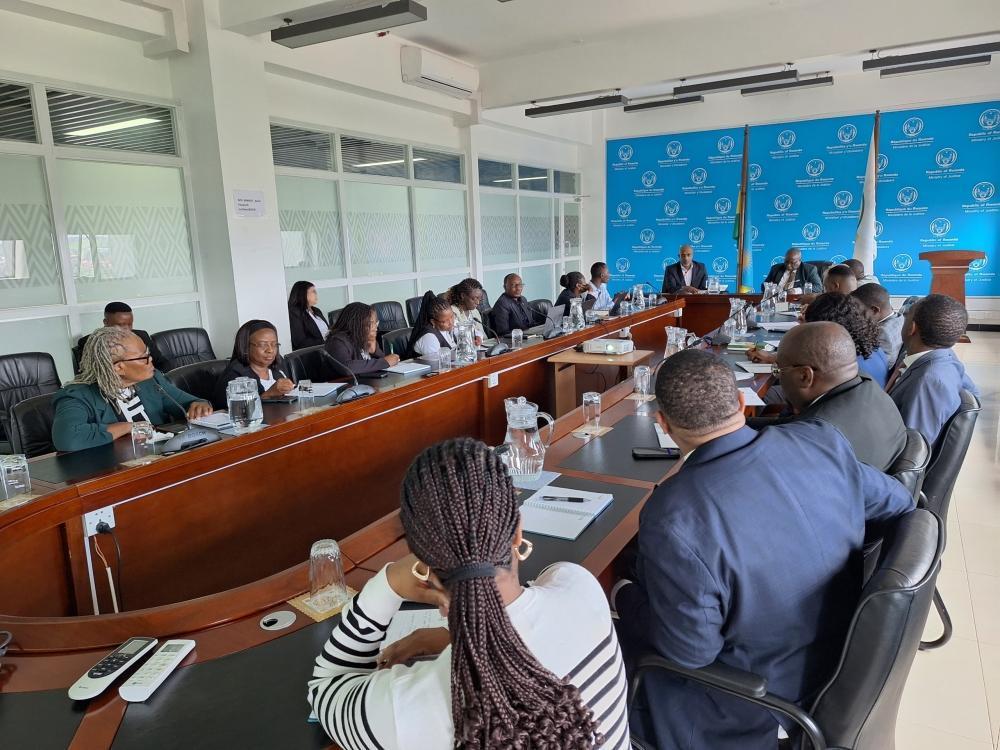Africa-Press – Rwanda. Namibia’s Deputy Chief Justice, Petrus T. Damaseb, has commended Rwanda’s progress in digitising the justice sector through an integrated electronic case management system, and expressed admiration for its efficiency, noting that Namibia, which still operates with stand-alone digital systems, is keen to learn from Rwanda’s model.
Damaseb is leading a five-day visit to Rwanda to explore the country’s advancements in judicial services digitisation and post-genocide reforms.
“We came to Rwanda to exchange ideas with our colleagues in the judiciary, particularly their lessons and experiences in digitising the judicial system and the linkages they have developed with other sectors of the Rwandan state,” Damaseb said.
Both delegations pose for a group photo in Kigali
He acknowledged that while Namibia has independent electronic systems, they are not yet interconnected, unlike Rwanda’s fully integrated digital infrastructure.
“We pleasantly learned a few months ago that Rwanda has made strides in that area…a completely integrated electronic system. That’s what we have essentially come to learn,” he added.
Damaseb emphasized the transformative power of digital systems, highlighting how they minimise the risk of lost or manipulated documents and accelerate dispute resolution. He pointed out that digitalisation aligns with global trends that demand speed and transparency in judicial processes.
“The way we did things in the past with manual, paper-based systems is outdated. It doesn’t contribute to development or the speed of doing business,” he stressed.
During their visit, the Namibian delegation engaged with key stakeholders, including Rwanda Cooperation, and the Ministry of Justice.
Damaseb described the exchanges as productive and insightful, noting that Namibia intends to draw from Rwanda’s experience to strengthen its own systems.
On his part, Rwanda’s Deputy Chief Justice, Alphonse Hitiyaremye, praised the visit as a sign of deepening ties and mutual learning.
“This visit is a testament to the deepening ties between our judiciaries and our shared commitment to upholding justice, the rule of law, and judicial cooperation across our continent,” he said.
Hitiyaremye described the visit as both a benchmarking opportunity and a step towards solidarity between the two nations’ judicial systems.
“We believe that through dialogue, knowledge exchange, and collaboration, we can continue to strengthen our institutions, build public trust, and contribute meaningfully to advancing justice in Africa and beyond,” Hitiyaremye added.
He also highlighted Rwanda’s judicial reforms post-1994 Genocide against the Tutsi, emphasizing the role of technology in ensuring integrity, transparency, and efficiency.
For More News And Analysis About Rwanda Follow Africa-Press








